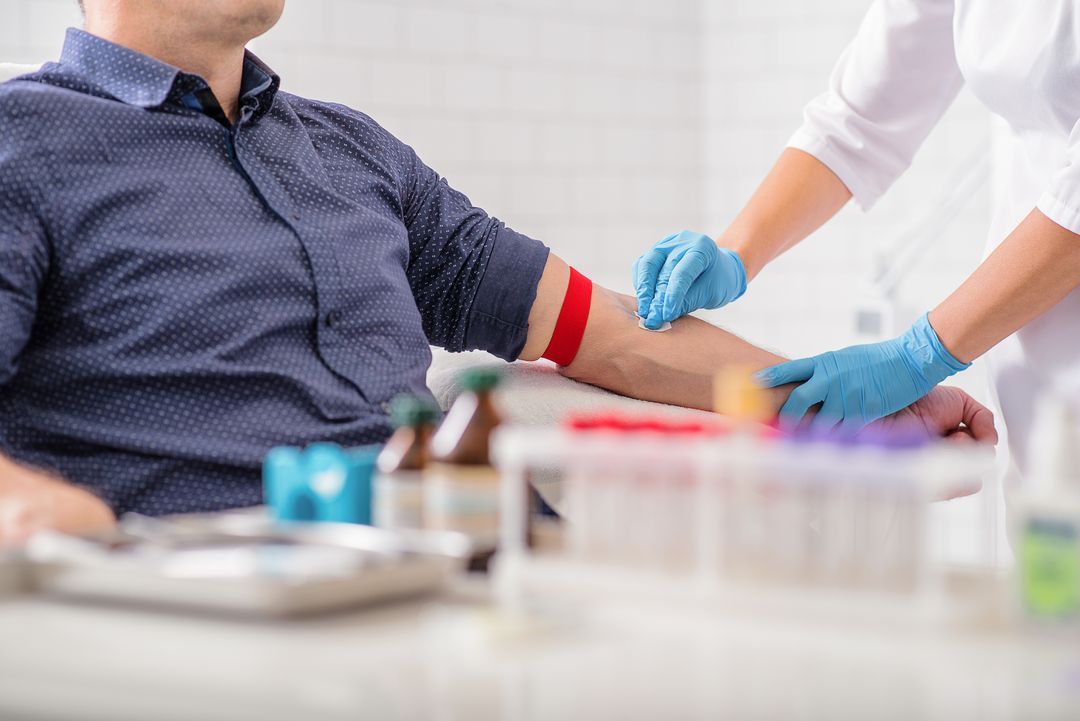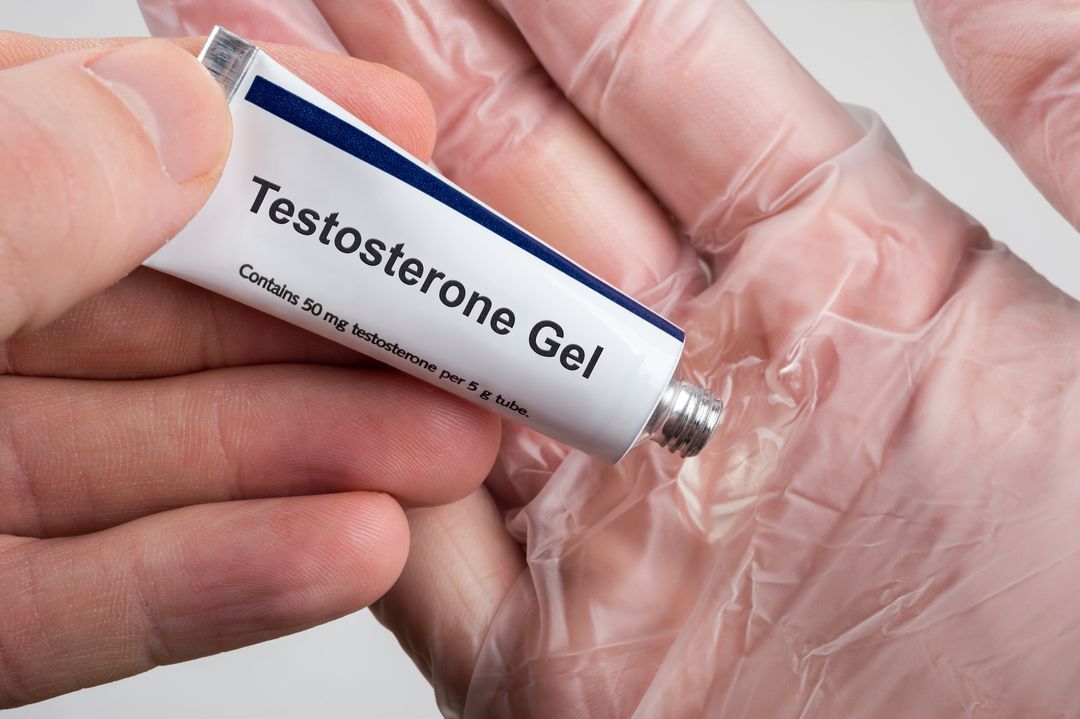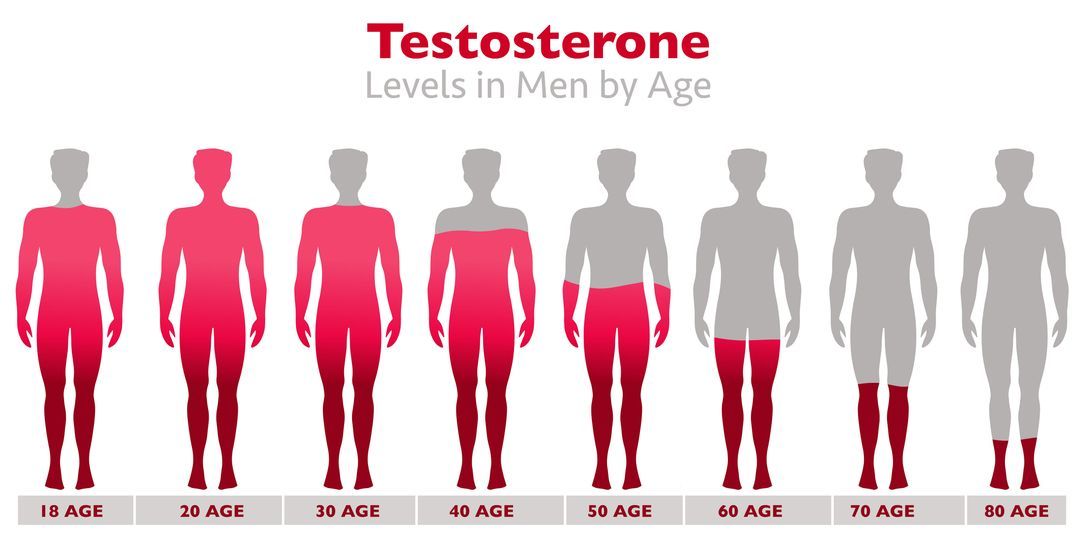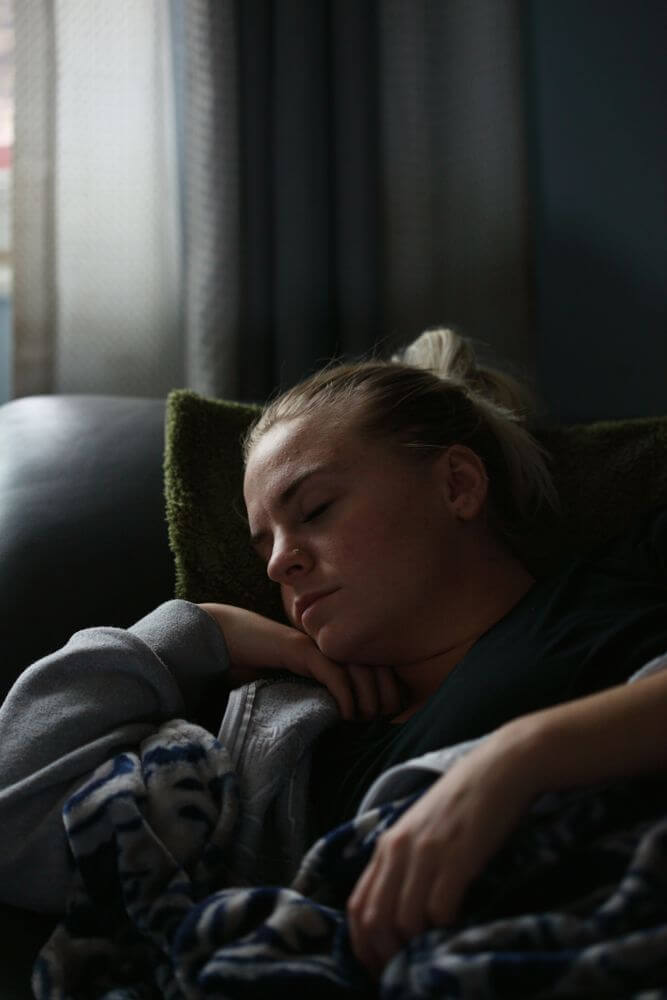Everything You Need To Know About Male Menopause Explained

Do men get menopause? How long does male menopause last? Read on to learn about hormonal changes in men as they age.
Summary
- Male menopause (also called andropause) refers to symptoms some men experience during the gradual decline in the levels of testosterone hormone, that has an onset in midlife. The symptoms can be challenging, but unlike female menopause, andropause does not have a lasting effect on lifespan or health.
- UK health professionals will not usually diagnose "male menopause," but they can check whether symptoms are due to a testosterone deficiency. A testosterone deficiency (hypogonadism) can cause mood swings, trouble concentrating, and low energy levels.
- Testosterone levels steadily decline at less than 2% a year between the ages of 30 and 40. Many male menopause symptoms are due to unhealthy lifestyles, and one of the major causes is stress.
- Eating healthily and exercising regularly helps prevent the unwanted symptoms.
Introduction
It is not only women that go through hormonal changes as they age. When men reach their late 40s and 50s, they too can experience physical and emotional changes.
But this does not mean we should have a disregard for the problems men can experience during this phase of their lives. Some men suffer from symptoms that interfere with everyday life and happiness.
What Is Male Menopause?

Male menopause (also known as andropause) refers to the general hormone decline during midlife. Similar to female menopause, male menopause can be challenging for many men. However, unlike the experience women go through, it does not have a lasting effect on lifespan or health.
Men may experience symptoms such as weight gain and fatigue not typically associated with the normal progression of ageing. Other symptoms include:
- Mood swings and irritability
- Loss of muscle mass and diminished ability to exercise
- Fat redistribution, which can include developing a large belly or "man boobs" (gynaecomastia)
- A general lack of enthusiasm or energy
- Difficulty sleeping (insomnia) or feeling more tired than usual
- Trouble concentrating and short-term memory problems
As you can imagine, experiencing the above can be a real upheaval, and male menopause symptoms can vary at different stages of life. In 40s (and even 30s), predominant symptoms may be a decline in sex drive and energy levels. As one reaches 50s, mood changes, depression, irritability and emotional outbursts may appear.
The symptoms of male menopause can feel like a rude interruption to everyday life, but it can be the perfect opportunity to reflect on life.
How Male Menopause is Diagnosed?

Doctors in the UK will not usually diagnose "male menopause," but they can check for a testosterone deficiency. Testosterone levels steadily decline from the age of 30 onwards, however, most men never reach testosterone levels so low that deficiency is diagnosed.
In adult age, hypogonadism may occur due to an organic cause, that is, due to disruption of the higher hormonal centres affecting testosterone release from the testes. Otherwise, testosterone deficiency occurs due to declining testicular function, as well as in the context of some common chronic medical conditions, such as obesity and diabetes. This is known as late-onset hypogonadism (LOH).
Since symptoms are non-specific, your GP is likely to take a thorough history from you, organise a detailed check-up and tests to check for the underlying cause. Unhealthy lifestyle habits, such as smoking, lack of sleep and exercise, overconsumption of alcohol, might contribute to the above-mentioned symptoms.
Ways To Manage Male Menopause Symptoms

There are plenty of things men can do to help make ageing, especially during their 40s and 50s, a little easier and less disruptive. One of the most proactive ways is to check how well the body is ageing by taking a biological age test that will reveal whether any lifestyle changes are necessary, which on their own, could help with male menopause symptoms.
If the "male menopause" symptoms you are experiencing result from testosterone deficiency, you may be offered testosterone replacement therapy. The treatment is available in many forms, and an endocrinologist (hormone specialist) will advise on the best option for you. TRT comes in form of:
- Tablet
- Patch
- Gel
- Implant
- Injection
Boosting Testosterone Naturally

Optimal testosterone levels in adult males at all stages of life are important for general health and healthy ageing.
Luckily, there are many natural ways to boost those testosterone reserves.
- Exercise regularly and lift weights – regular muscle strengthening exercise helps across a range of health outcomes. Research also shows that it may help bring testosterone levels up.
- Reduce stress – research demonstrates that long-term stress (and high cortisol levels as a result) has many negative effects on the body, including testosterone levels, too. The two hormones may be seen as working in a seesaw fashion - when one goes up, the other comes down
- Eat a healthy diet – food choices affect your hormonal balance. Opting for whole foods and plant variety may help your hormonal balance.
- Getting plenty of vitamin D – some research studies show a potential association between low vitamin D levels and low testosterone levels, although the evidence is conflicting. However, it is worth making sure your vitamin D levels are in normal range and if not, to ensure that deficiency is corrected.
Closing Thoughts
Although there is a bit of a dispute among hormone experts on whether male menopause is a thing, it is recognised that men during middle age can also experience some unpleasant symptoms as they age. Following a healthy lifestyle and diet is one of the best ways to ensure you face fewer age-related problems as you grow older. If you have any concerns with how well your body is ageing, use our GlycanAge home testing kit and talk to one of our specialists.
Frequently Asked Questions (FAQs)
Is there a male version of menopause?
Many hormone experts argue that male menopause (or andropause) is not a suitable term to use as it incorrectly implies men experience similar extreme hormonal changes as women. However, men may experience a variety of symptoms associated with a decline in testosterone level, which in some, may fall below normal range.
At what age does male menopause start?
Symptoms associated with male menopause normally occur during middle age. Since these are non-specific, they may be caused by a variety of other lifestyle factors (e.g. unhealthy diet, smoking) or a result of an underlying chronic disease.
How long does male menopause usually last?
Male menopause does not have a set duration and it may last for 15 to 20 years or longer.
What is a common treatment for male menopause?
Men who have symptoms associated with late-onset hypogonadism (and low testosterone levels) may be offered testosterone replacement therapy that works best when lifestyle choices are also optimised (diet, exercise, stress levels).This line of treatment can provide relief from the symptoms. However, lifestyle changes can also be a huge help, so ensure you exercise regularly, manage stress levels, and keep an eye on your nutrition intake.
Can male menopause cause sweating?
When talking about menopause, one of the first symptoms that pop to mind for most people is hot flashes. Although it is a common symptom experienced by women during menopause, it is rarer in men and if persists, should be discussed with a physician.
References
https://www.nhs.uk/conditions/male-menopause/
https://www.ncbi.nlm.nih.gov/pmc/articles/PMC8998588/
https://onlinelibrary.wiley.com/doi/full/10.1111/andr.12719
https://www.ncbi.nlm.nih.gov/pmc/articles/PMC5434832/
https://www.mayoclinicproceedings.org/article/S0025-6196(17)30824-8/fulltext
https://www.hindawi.com/journals/ije/2021/7523996/
https://www.ncbi.nlm.nih.gov/pmc/articles/PMC7739287/
https://www.statpearls.com/ArticleLibrary/viewarticle/20047
https://www.frontiersin.org/articles/10.3389/fmolb.2019.00091/full
https://journals.sagepub.com/doi/full/10.1177/02601060221083079
https://journals.sagepub.com/doi/full/10.1177/02601060221083079
https://academic.oup.com/jcem/article/104/8/3148/5393291
Boosting Testosterone Naturally


